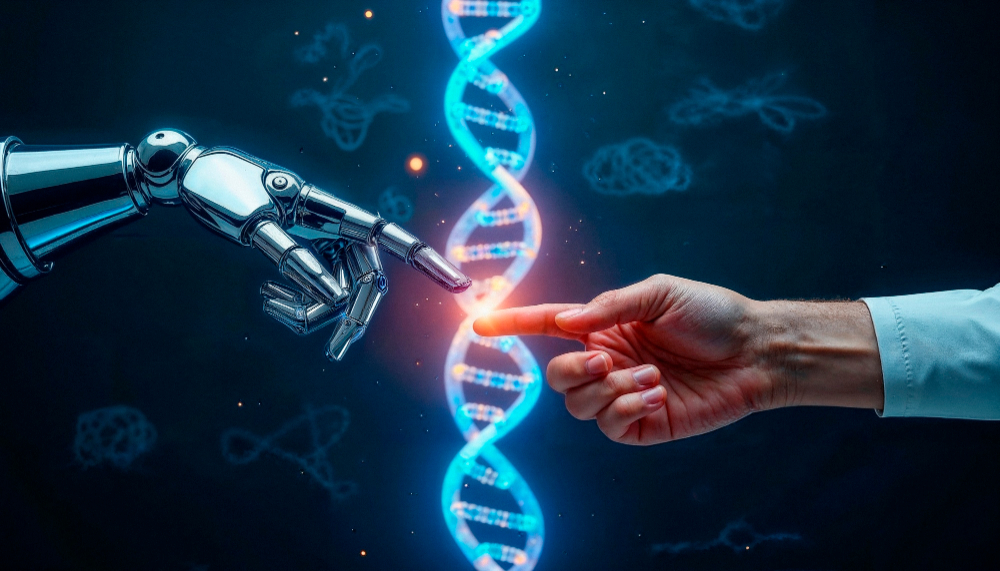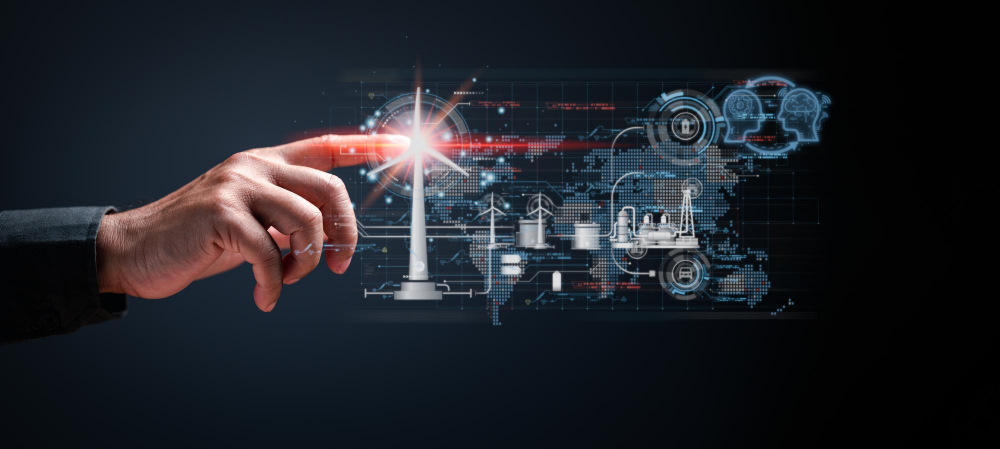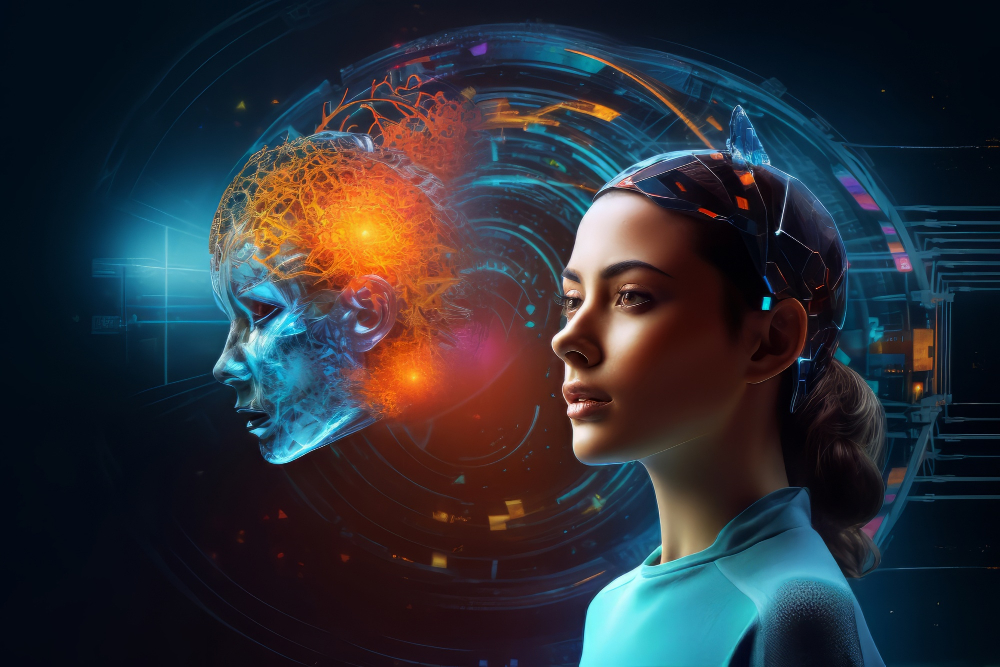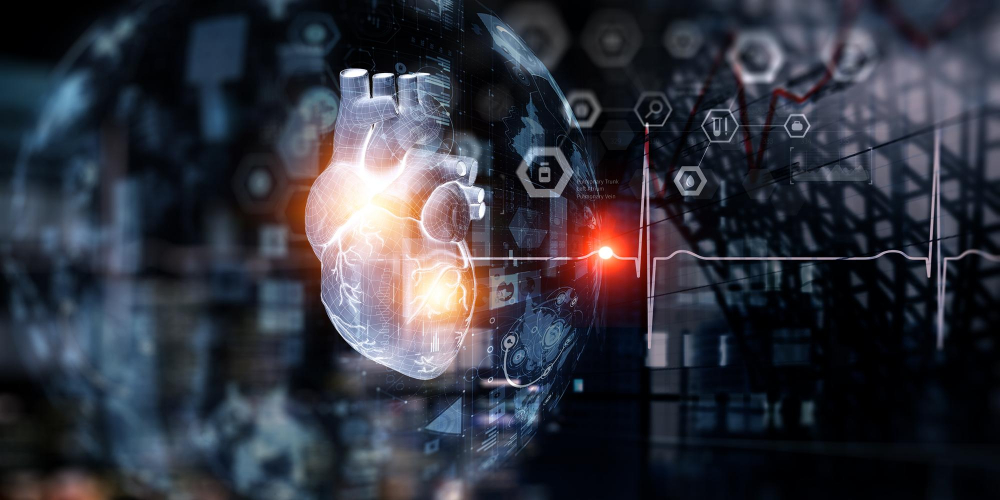- Blog
- October 27, 2025
How AI is accelerating innovation in life sciences

- Blog
- October 27, 2025
How AI is accelerating innovation in life sciences
The life sciences industry is witnessing a technological revolution powered by Artificial Intelligence (AI). From early disease detection to personalized drug discovery, AI is transforming how researchers, clinicians, and pharmaceutical companies operate. What once took years of experimentation can now be achieved in months, thanks to AI-driven insights and automation. The synergy of data, computation, and human intelligence is unlocking new frontiers of innovation, speed, and precision in the life sciences sector.
The role of AI in transforming research and development
Research and development (R&D) have always been the heart of life sciences. However, traditional R&D processes are slow and resource-intensive. AI is reshaping this landscape by analyzing massive datasets to identify molecular interactions, predict compound behavior, and streamline experimental design.
Pharmaceutical companies are now using AI to simulate how drugs interact with the human body before actual clinical trials. This approach not only saves time but also reduces costs significantly. Platforms powered by machine learning models can scan through millions of chemical compounds to identify potential drug candidates, accelerating the discovery phase and improving success rates.
Drug discovery and development: From years to months
AI is dramatically cutting down the time needed to develop new drugs. Machine learning algorithms can analyze genetic data, medical records, and biochemical pathways to identify promising targets faster than ever before.
For example, during the COVID-19 pandemic, AI models played a critical role in identifying potential antiviral compounds in record time. Companies like DeepMind used AI-powered protein-folding predictions to understand virus structures, supporting vaccine development. Such breakthroughs highlight how AI can shorten drug discovery timelines from years to months, helping bring life-saving treatments to market faster.
Personalized medicine and precision healthcare
Every patient is unique, and AI is helping the medical community move toward truly personalized care. By analyzing patient data, genomic information, and lifestyle factors, AI can recommend tailored treatment plans that work best for individual needs.
AI systems can also predict how patients will respond to specific drugs, reducing the risk of adverse reactions and improving treatment outcomes. Hospitals and healthcare providers are using AI-based diagnostic tools to detect diseases such as cancer, diabetes, and neurological disorders earlier and more accurately. This shift toward precision healthcare will improve both quality of care and patient satisfaction.
Enhancing clinical trials with smart automation
Clinical trials are one of the most complex and costly stages of drug development. AI is transforming this process by automating data collection, identifying suitable participants, and monitoring patient responses in real time.
AI-powered predictive analytics can help researchers determine which trial designs are most likely to succeed. Natural Language Processing (NLP) tools can scan scientific literature to identify patterns and insights that inform trial protocols. Moreover, AI chatbots and digital assistants are being used to maintain communication with trial participants, ensuring higher engagement and adherence.
AI in genomics and biotechnology
Genomics has become one of the most AI-intensive fields within life sciences. Analyzing genetic sequences manually is time-consuming, but AI can process large-scale genomic data in minutes. This capability will enable scientists to detect mutations, predict genetic disorders, and develop targeted therapies with greater accuracy.
In biotechnology, AI supports everything from bioengineering and molecular modeling to crop improvement and synthetic biology. Startups and research institutions are increasingly adopting AI-powered bioinformatics platforms to speed up discovery and innovation.
Improving operational efficiency across the value chain
Beyond research, AI is enhancing operational efficiency across the entire life sciences value chain. Predictive analytics is helping pharmaceutical companies forecast demand, optimize supply chains, and manage inventory effectively.
AI-based quality control systems can detect manufacturing deviations early, preventing costly errors. In laboratories, robotic automation powered by AI is streamlining repetitive tasks, allowing scientists to focus on strategic and creative aspects of research.
Ethical AI and the future of life sciences
As AI becomes more deeply embedded in life sciences, ethical considerations are gaining prominence. Issues such as data privacy, algorithmic transparency, and fairness are critical to maintaining trust in AI-driven healthcare innovations. Organizations must ensure compliance with regulatory standards while promoting responsible AI adoption.
The future of AI in life sciences will depend on collaboration between data scientists, medical experts, and policymakers. By aligning technology with human values, the industry can ensure that AI innovations truly serve humanity’s best interests.
AI is no longer a futuristic concept in life sciences; it is the driving force behind the industry’s next wave of transformation. From accelerating drug discovery to personalizing patient care and optimizing operations, AI is making every aspect of life sciences smarter, faster, and more efficient.
As organizations continue to integrate AI into their core strategies, those who invest in data, ethics, and cross-disciplinary collaboration will lead the charge toward a more innovative and sustainable future in healthcare and life sciences.




